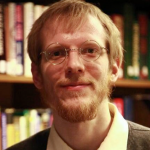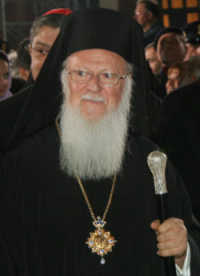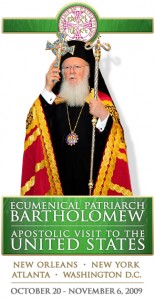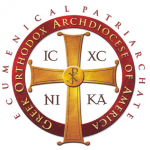
Deprecated: trim(): Passing null to parameter #1 ($string) of type string is deprecated in /home/aoiusa/public_html/wp-content/plugins/sexybookmarks/public.php on line 388
Deprecated: trim(): Passing null to parameter #1 ($string) of type string is deprecated in /home/aoiusa/public_html/wp-content/plugins/sexybookmarks/public.php on line 394
Deprecated: trim(): Passing null to parameter #1 ($string) of type string is deprecated in /home/aoiusa/public_html/wp-content/plugins/sexybookmarks/public.php on line 400
Source: Acton Powerblog | Dylan Pahman
Today at First Things’ On the Square feature, I question the tone and timing of Patriarch Batholomew’s recent message on climate change. While I do not object to him making a statement about the subject in conjunction with the opening of the Warsaw Climate Change Conference, his initial reference, then silence, with regards to Typhoon Haiyan while other religious leaders offered their prayer, sympathy, and support to those affected, is disappointing. I write,While other religious leaders offered prayer and tangible support, all that has come from the Phanar is an environmental statement. Hurting people need practical and pastoral help, not politics.
An additionally troubling aspect of the problem comes from his clear implication that the typhoon was caused, or at least intensified, by anthropogenic climate change, using this tragedy to advocate for a political cause through a disposition of fear:
This week — even as the world mourns the tragic loss of life in the unprecedented Typhoon Haiyan in the Philippine Islands — political leaders have converged on Warsaw, Poland, in yet another anticipated meeting on climate change. Concerned citizens throughout the world are hoping and praying for prompt and practical results.
I wonder sometimes about the disposition behind connecting a natural disaster that has resulted in the loss of over 10,000 lives with a call for political activism.
That is, care for and cultivation of the creation are divine mandates. In this sense all Christians ought to be environmentalists, as his All-Holiness has pointed out in his extensive work on the subject.
On the other hand, as commands from God, we must not only look to the form but the motivation of our actions, “for man looks at the outward appearance, but the Lord looks at the heart” (1 Samuel 16:7).
In their recent monograph Creation and the Heart of Man, Fr. Michael Butler and Andrew Morriss outline three biblical and patristic dispositions of those who serve God: “those of a slave, a servant, and a son.”
Abba Chaeremon offers an excellent summary in the Conferences of St. John Cassian:
If then any one is aiming at perfection, from that first stage of fear which we rightly termed servile (of which it is said: “When ye have done all things say: we are unprofitable servants,”) he should by advancing a step mount to the higher path of hope — which is compared not to a slave but to a hireling, because it looks for the payment of its recompense, and as if it were free from care concerning absolution of its sins and fear of punishment, and conscious of its own good works, though it seems to look for the promised reward, yet it cannot attain to that love of a son who, trusting in his father’s kindness and liberality, has no doubt that all that the father has is his…. (emphasis added)
Notice that Abba Chaeremon outlines a progression of motivation, from fear of punishment for wrong (a slave), to hope for reward for doing good (a paid servant), to love alone (a son).
Regarding the first disposition, Butler and Morriss write, “The analog among environmentalists is the fearmongering language of crisis, catastrophe, apocalypse, global disaster, total destruction, cataclysm, and so forth, of which we often read.” The problem with this: “We acknowledge that fear can be a powerful incentive for action, but actions based on fear, because they are founded on emotion and not on clear reasoning, tend toward the irrational and are therefore untrustworthy.”
Thus, messages that focus almost entirely on the negative affects of poor environmental stewardship, such as the Patriarch’s recent message, run the risk of over-focusing on fear, endangering “clear reasoning,” as evidenced perhaps by his neglect of sympathy for those who suffer from this great devastation.
“We prefer that our witness not be a slavish one, borne out of fear,” Butler and Morriss write, “but a hopeful one grounded in a better rationale. The Orthodox should therefore reject the tendency toward apocalyptic rhetoric among many environmentalists.”
 In His All-Holiness’s defense, not every message of his takes such a fearful posturing, but this is a worrying trend. Far better than acting out of fear of disaster — or even hope for the fruits of a cleaner, healthier earth, (which is not entirely absent from his message) — would be a return to advocating for love for God and for God’s creation.
In His All-Holiness’s defense, not every message of his takes such a fearful posturing, but this is a worrying trend. Far better than acting out of fear of disaster — or even hope for the fruits of a cleaner, healthier earth, (which is not entirely absent from his message) — would be a return to advocating for love for God and for God’s creation.
As St. Isaac the Syrian wrote,
What is a merciful heart? It is a heart on fire for the whole of creation, for humanity, for the birds, for the animals, for demons, and for all that exists. By the recollection of them the eyes of a merciful person pour forth tears in abundance. By the strong and vehement mercy that grips such a person’s heart, and by such great compassion, the heart is humbled and one cannot bear to hear or to see any injury or slight sorrow in any in creation. For this reason, such a person offers up tearful prayer continually even for irrational beasts, for the enemies of the truth, and for those who harm her or him, that they be protected and receive mercy. And in like manner such a person prays for the family of reptiles because of the great compassion that burns without measure in a heart that is in the likeness of God.
At best, I think the Green Patriarch’s environmental activism comes from “one [who] cannot bear to hear or to see any injury or slight sorrow in any in creation.” I only wish that the injury and sorrow of those created in God’s image would take priority for him and that such all-embracing love would be the Patriarch’s focus rather than a disposition of fear.
Read my full essay at First Things here.






